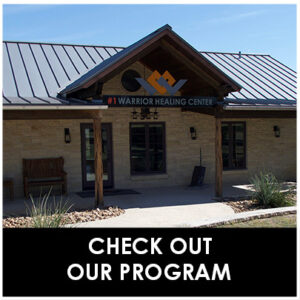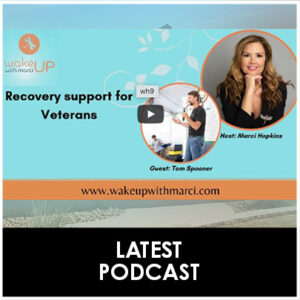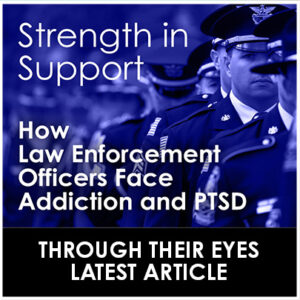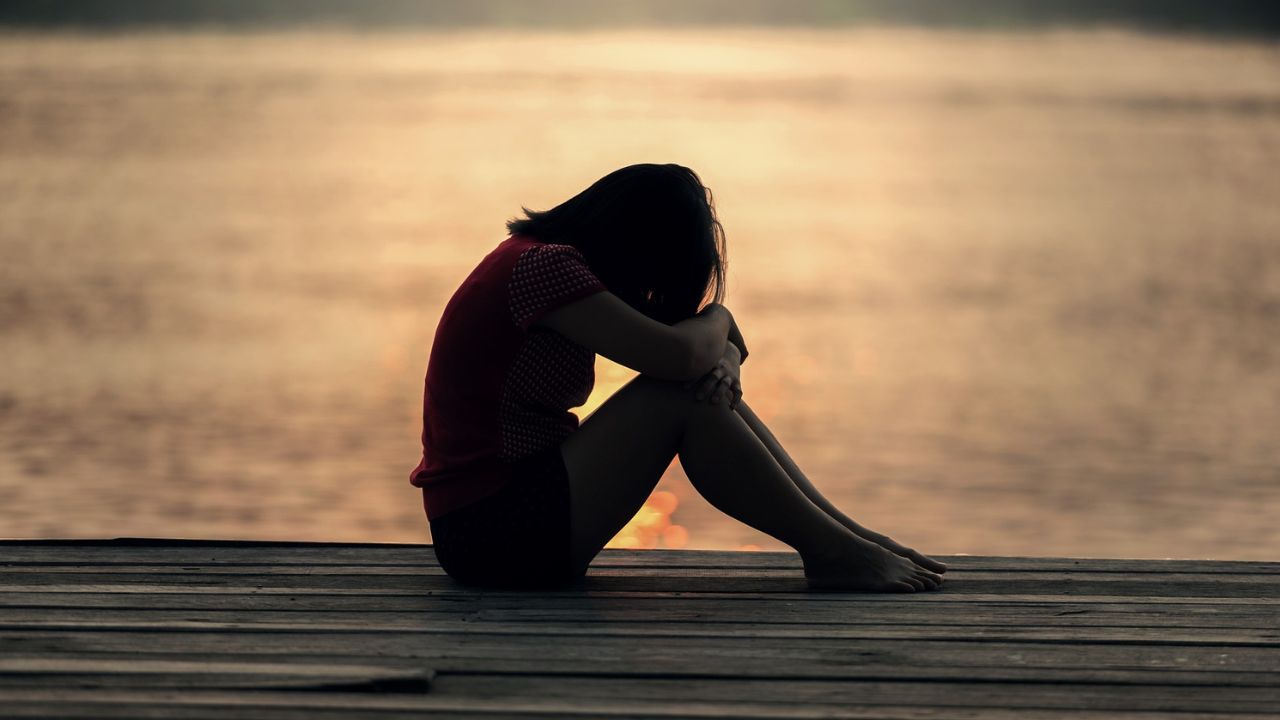“He ruined what was supposed to be the best night of our lives,” remembers Noelle Cosette*. “My wedding day, is a day that will forever sit in my memory as a night my husband almost killed me – and he doesn’t even remember getting dressed that day because he was so high.”
Five years ago, Noelle was preparing to marry a man who everyone thought was her perfect other “They all saw Marshall* as a hero.” Marshall, a medically retired member of the Army’s 5th Special Forces Group, promised Noelle the day would be her dream wedding – the one she had planned her entire life – and she prayed he was right.
The problem was, it had been over four years since Marshall fell asleep sober. The inevitable flashes of pain and discomfort from an IED explosion became his personal, daily nightmare. He served his country, protecting his teammates and those at home – and how he lived with chronic pain all over his body.
He numbed the pain with drinks every night; numbing the shooting pains and allowing him to relax into a sleep.
“When the bottles began to run dry faster than they could stay open, I needed something that would last longer – so I started taking pills…which eventually turned into the release that only heroin could provide,” admits Marshall. “It was a high I never wanted to come down from – nothing hurt, I felt nothing at all.”
That numbness was what Marshall needed on the day he was supposed to wed Noelle. The combination of extreme anxiety of the weekend, paired with his chronic back and leg pain was too much to handle – and Marshall used. When he woke up – he was alone in his bed, naked and without a new wife.
“When I looked up before my father walked me down the aisle, I could see him leaning on his best friend, who could barely hold him up. He had his sunglasses on (my ONE request for the day for him not to have) and wasn’t looking at me. I knew he was high – I just didn’t know how bad.”
Without hesitation, Noelle looked at her father and through tears, told him that she couldn’t do it – and left. While the guests and family members left with disappointment and confusion, Marshall was presented with angry friends, future-brother’s-in-law and an ultimate ultimatum of sobriety or jail.
When Americans are asked to recognize U.S. service members, law enforcement and first responders, the feelings of reverence honoring those men and women are of unity and appreciation. The recognition that these heroes sacrifice their safeties in daily battles is generally met with gratitude and celebration.
But these heroes are fighting even after their life on the frontlines has ended. The battlefield at home is far greater a foe; opioids, alcohol, and suicide each claiming their victims in numbers that greatly surpasses any battlefield – domestic or overseas.
According to the U.S. Department of Veterans Affairs, veterans and service members of all ages afflicted with opioid use disorder (OUD), are ten times more likely than the public to abuse opioids and twice as likely to overdose.
About a third of opioid abuse among service members and veterans could be explained by a war injury, with one-in-four troops having been prescribed an opioid medication each year at hospital discharge (with rates decreasing according to the Military Health System), and a quarter continued to take them for a prolonged period of time following their releases. This self-medication leads to opioid abuse as the prescriptions run out, causing patients to turn to sedatives and tranquilizers for non-medical purposes, or pairing opioids like heroin and fentanyl together with drugs like benzodiazepines. This out-of-control spiral often results in broken relationships with loved ones, a slow mental breakdown, and can even lead to suicide if left unaddressed.
Addressing this epidemic as it relates to the military community comes with a unique level of navigation, to include the self-imposed stigma service members face when they seek help within their own community. With the added concern that clients may regress during this unprecedented time of physical and social distancing, the team at Warriors Heart – a private treatment facility providing care for addiction and chemical dependency & PTS for active military, veterans and first responders – recognize that those living with SUD, OUD, PTS and TBI suffer from a disease of isolation.
Noelle eventually had to walk away from the dream of a life with Marshall. “While he was able to get sober, I couldn’t live a life with the man who chose to get high, over a promise me made to me. And I couldn’t continue to pretend to be okay with that life – I didn’t trust him. I couldn’t be the one to hold him up anymore.”
“One of the biggest apprehensions in entering any addiction treatment, is the fear of experiencing withdrawal symptoms,” stated Warriors Heart Co-Founder, Tom Spooner. “It’s a valid concern, and one that we at Warriors Heart don’t take lightly – because depending on the length and level of abuse, those withdrawal symptoms can be incredibly painful. Certain drugs can make the detox process much more raw, based on their side-effects to the body.”
Healing is not a, “one-size-fits-all.” Addiction doesn’t discriminate, nor does it wait for “the right time” for an addict to decide to get help, which involves a complete substance abuse treatment program for successful and long-lasting sobriety. While coupled with individual therapy, medications and other interventions, many people rely solely on groups once the detox phase of treatment has ended. Over 23 million Americans experience a substance use disorder (SUD), among whom only 10% access treatment.
Warriors Heart – a private treatment facility, exclusively for Warriors, providing care for addiction, chemical dependency & PTS for active military, veterans, law enforcement and first responders – understands the unique demands of our warriors, and works to successfully navigate healing and recovery while in the company of people who personally understand each experience.
“As addicts, we are looking for the quick fix, the easy way out,” stated Marshall. “We would seek to find that solution, albeit only temporary, at the bottom of a whiskey bottle or pill bottle. At Warrior’s Heart we are taught and guided through the twelve-step program of recovery; given tools, rather than drugs to combat our addiction and PTS. As members of the Warriors community, one thing we love to do is work. We overcame many challenges in our lives to earn that title of “Warrior.” The same applies in our recovery program at Warrior’s Heart – we work at it, both physically and mentally. No pill or injection can give you that connection with a higher power. No pill or injection can give you gratitude. No pill or injection can grant you the serenity to accept the things that you cannot change, give you the courage to change the things that you can and give you the wisdom to know the difference. No pill or injection can give you your life back.”
At Warriors Heart, the detox center is fully staffed with licensed and experienced alcohol addiction specialists who provide personalized monitoring and management of withdrawal symptoms around the clock. Each individualized detox program is designed to provide the highest quality treatment for overall wellness and recovery.
Across the country, treatment centers, like Warriors Heart, remain ready and available to provide the treatment to their clients in overcoming substance abuse.
Regardless of how strong you are, how fit for battle you might believe yourself to be, some battles require a force.
Warriors Heart knows first-hand the magnitudes of being in battle, and provides a place where that mentality, warriors helping warriors, resides in the hearts of every member of the team. Other warriors and team members personally connect with those who have reached a point in their life where they think they have nothing to live for; showing them that strength is found in this unique facility, that simply and truly believes in the power of the warrior community, the power of each human who walks through the door of Warriors Heart and the power of each graduate who proudly emerges through the gates after graduation.
Ecclesiastes 4:12 And though a man might prevail against one who is alone, two will withstand him—a threefold cord is not quickly broken
If you or a warrior need help with addiction, PTS or co-occurring issues, please contact Warriors Heart’s 24-hour hotline (888-440-7107) answered by warriors and/or visit https://warriorsheart.com.
Call 24/7 @ 1 844-958-1183 or visit the link below.
https://www.warriorsheart.com/contact-us/














